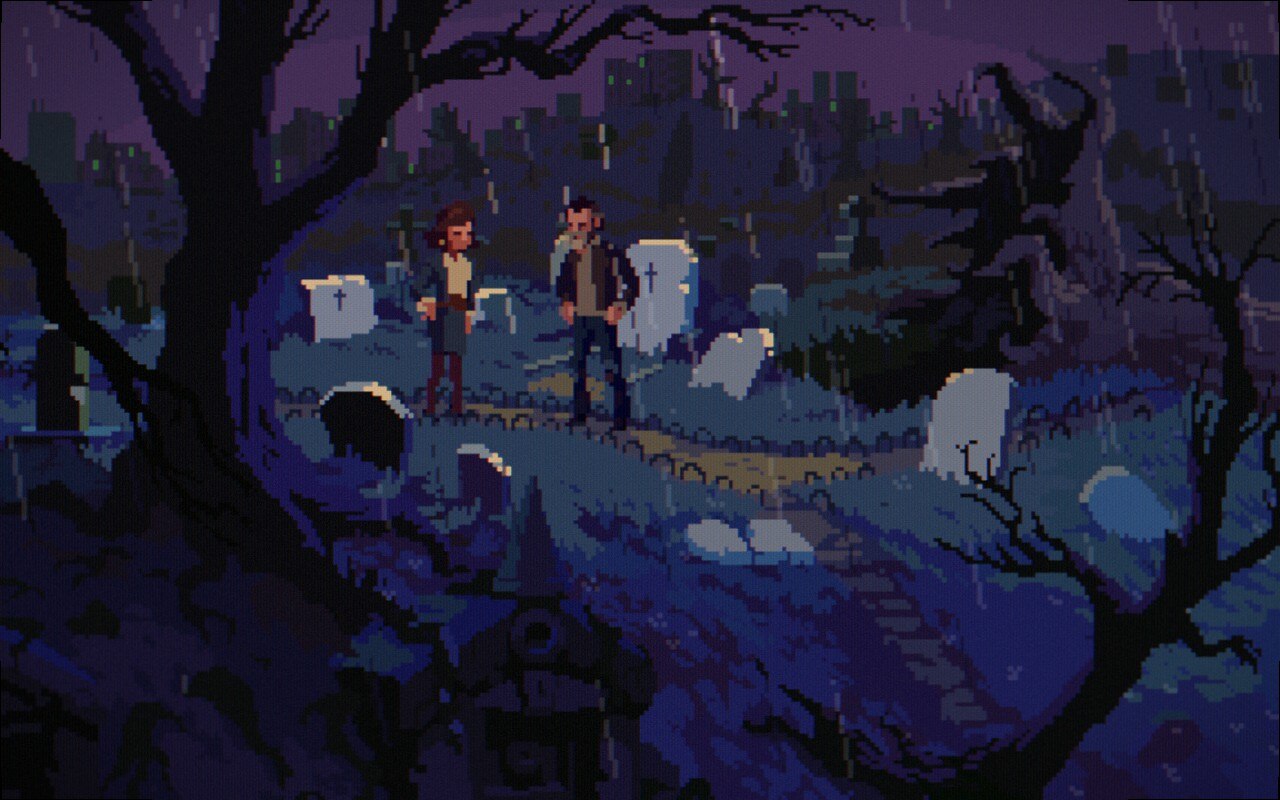Six Days in Fallujah gameplay video looks a lot like Call of Duty
The creators say they're aiming for authenticity, but so far the Iraq War FPS looks like a typical American action game.
After Konami walked away from Six Days In Fallujah in 2009, it wasn't clear whether the controversial first-person shooter—called "sick" at the time by an anti-war group—would ever be finished and released. Surprise: One of the creators, Peter Tamte, reappeared earlier this year with his own publishing company and a new version of the game, which is scheduled to release before the end of 2021.
Today, IGN published a first look at Six Days In Fallujah's gameplay, which is embedded above. Tamte told Game Informer that Six Days will "challenge outdated stereotypes about what videogames can be" earlier this year, but after watching this video, it kind of looks like a typical shooter, if you ask me.
The overall look and animations have an obvious Call of Duty feel, and conceptually speaking, the video is reminiscent of Modern Warfare's 2019 reveal—that "Clean House" mission in which night vision-equipped soldiers clear a house mixed with enemy combatants and civilians. The Fallujah setting here is different, obviously, but the trailer depicts a squad of US Marines fighting in the streets and then entering dark houses, ending with a scene in which the player points their gun at a civilian.
The feature highlighted by the video is procedural generation, which changes the layouts of buildings and neighborhoods so that "just like actual combat, you'll never know what to expect." I'm pretty sure actual houses don't rearrange themselves, but the aim of course is to create the feeling that you're a real Marine bursting into unfamiliar buildings. Six Days continues to bill itself as true to life.
That claim is, in brief, why Six Days in Fallujah is controversial. It's based on a real Iraq War battle led by US Marines in 2004. One charge is that basing a game on a recent deadly battle is tasteless in itself, but the criticism has largely been about the specific potential for glorification of the Iraq War, and the impression that Six Days will deliver an apologetic, pro-US point of view on this particular battle, in which hundreds of Iraqi civilians were killed. For example, interviews in this trailer suggest that civilians who didn't leave Fallujah before the battle were in general just being stubborn, but it was reported at the time that the US stopped Iraqi men aged 15 to 55 from fleeing. The US is also accused of burning civilians with white phosphorus; it didn't admit to that, but did say that it used white phosphorus as a weapon during the battle.
Game developer Rami Ismail, who co-hosts a podcast called The Habibis about games and life from the perspective of "Arabs living all over the big world," has been critical of Six Days in Fallujah since its announcement, and of depictions of Arabs and Muslims in games in general. In response to this trailer, Ismail posted a video and Twitter thread with moment-by-moment commentary.
"They have literally randomized the city of Fallujah so that 'you never know what's behind the door,'" he wrote. "Have to admit that heroically murdering Muslims/Arab/Middle Eastern folks but make it procedural is new. We are literally not human enough to hand-design anymore."
Keep up to date with the most important stories and the best deals, as picked by the PC Gamer team.
I watched the Six Days in Fallujah gameplay trailer so nobody else has to. Here's a quick video with live thoughts as I watched it, and more written out thoughts continue below: pic.twitter.com/wXqctB0LoLMarch 23, 2021
"Six Days in Fallujah is a 2001-design tactical squad FPS with insincere marketing about 'telling the true story' and 'you had to be there' while literally having Call of Duty damage vignettes and procedural generation of war crime victims," concluded Ismail later in the thread.
Games industry analyst Daniel Ahmad pointed to his previous criticism, in which he called Six Days "a shallow attempt at explaining away the illegal Iraq war and trying to recruit people to the army."
The Six Days in Fallujah FAQ states that the US government isn't funding the game, and that there are no plans "to use it for recruiting," though criticisms such as Ahmad's are not (always) meant to be taken as literal claims of direct government involvement—the point is that the game is seen as pushing cultural narratives beneficial to the American military-industrial complex.
Earlier this year, Tamte said that Six Days is "not trying to make a political commentary," but later conceded that the game is "inseparable from politics," although he didn't state specific political goals.
"We believe the stories of this generation's sacrifices deserve to be told by the Marines, Soldiers, and civilians who were there," wrote the publisher, which added that 26 Iraqis civilians were interviewed in the creation of the game.
The acknowledgement that Six Days has a political point of view didn't settle anything, in the end. Critics of the Iraq War and US policy and attitudes toward Arabs, Muslims, and Muslim-majority countries have no confidence that the game will reflect their perspectives, and I think it's pretty safe to say that it won't—today's trailer looks like a typical action game about American heroes at war in the Middle East.
Six Days in Fallujah doesn't have a release date at the moment, but the publisher plans to get it out before the end of this year.

Tyler grew up in Silicon Valley during the '80s and '90s, playing games like Zork and Arkanoid on early PCs. He was later captivated by Myst, SimCity, Civilization, Command & Conquer, all the shooters they call "boomer shooters" now, and PS1 classic Bushido Blade (that's right: he had Bleem!). Tyler joined PC Gamer in 2011, and today he's focused on the site's news coverage. His hobbies include amateur boxing and adding to his 1,200-plus hours in Rocket League.

